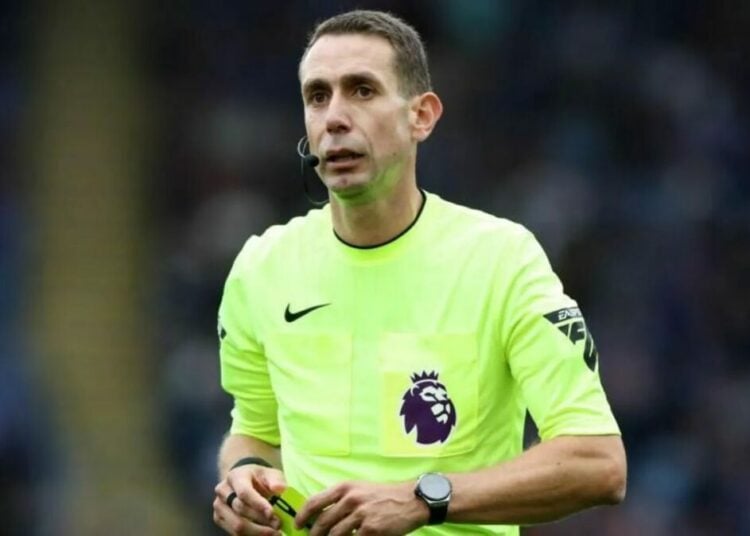Urgent Warning: 'Lives At Risk' As Government Nixes Prostate Screening Plans

Prostate cancer survivors and campaigners across the UK are strongly urging the Government to proceed with plans for a national prostate cancer screening programme. This critical initiative aims to address the fact that prostate cancer remains the last major cancer without a countrywide screening program, tragically claiming the lives of over 12,000 men annually and affecting 56,000 men each year. Despite this urgent need, reports surfaced last week indicating that the independent UK National Screening Committee (UKNSC) is expected to advise the Government against implementing routine NHS tests for men most at risk, citing concerns over cost-effectiveness.
However, these concerns are directly challenged by an upcoming report from Prostate Cancer Research, set to be presented to the Government and the UKNSC. This report will demonstrate that a national screening programme could be effectively rolled out across the UK without placing an overwhelming burden on the NHS. Supporters of screening highlight its life-saving potential and its long-term economic benefits. Financial adviser Bruce Hobley, 71, currently undergoing cancer treatment, emphasized the obvious need for screening, stating, "I know plenty of survivors and some of them would not still be here if they had not had an early screening. Not only does it result in many men being cured and saving lives, but also, if it's caught at a later stage, then the impact on the NHS is going to be far greater. So if the idea is to save funds it doesn't pass that test either."
The profound personal impact of late detection is underscored by Rupert Crowfoot, 57, chief executive of Six Physiotherapy, who faces a terminal prostate cancer diagnosis. He unequivocally stated, "I have no doubt screening would have saved my life, and I know many men who'd say the same. We need the Government to step up and support an early detection programme. Every day that passes without these changes, more men's lives are lost." Leading figures have echoed this call, with former Prime Minister Rishi Sunak affirming that a targeted programme would save lives and that "Now is the time to implement a targeted screening programme for the most common cancer among British men." Laura Kerby, Chief Executive of Prostate Cancer UK, added, "We know a safe and effective screening programme will save thousands of men's lives." The Daily Mail has also been a prominent voice, campaigning actively to end needless prostate cancer deaths.
Adding to the urgency is data from the National Prostate Cancer Audit, which revealed significant health inequalities in England. The audit found that men from the wealthiest parts of England are twice as likely to receive a prostate cancer diagnosis compared to those from the poorest areas. Specifically, one in four men diagnosed in 2022 lived in the top fifth most affluent areas, while only 13 percent were in the poorest fifth. This disparity highlights that while the cancer is treatable if caught early, late detection can be fatal, with half of patients dying within five years if not diagnosed until an advanced stage.
In response to the growing pressure, a Department of Health and Social Care spokesman stated the government's desire for screening but maintained that "the decision must be evidence-led." They confirmed that the independent UK National Screening Committee is reviewing this as a priority and its advice will be considered. The government is also committed to strengthening cancer services across the NHS, having diagnosed or ruled out 135,000 more cancer cases this year, and is investing in research into prostate cancer detection. The campaign for a national screening program has garnered significant public support, including from notable personalities such as Olympic cyclist Sir Chris Hoy and actor Sir Stephen Fry, further emphasizing the widespread call for action. Globally, the seriousness of the disease is highlighted by cases such as former US President Joe Biden, 82, who is undergoing radiotherapy for an aggressive form of prostate cancer that has spread to his bones.
You may also like...
Ex-Premier League Referee Faces Prison After Guilty Plea in Child Image Case

Former Premier League referee David Coote has pleaded guilty to the serious charge of making an indecent image of a chil...
Osimhen's Hat-Trick Fuels Super Eagles' World Cup Hopes in Thrilling Benin Clash

Nigeria's Super Eagles secured a playoff spot for the 2026 FIFA World Cup with a dominant 4-0 victory over Benin, highli...
Mel Gibson Casts New Jesus for Highly Anticipated ‘Passion of the Christ’ Sequel

"The Resurrection of the Christ," Mel Gibson's highly anticipated sequel to "The Passion of the Christ," has begun filmi...
Legendary ‘Star Wars’ & ‘Blade Runner’ Poster Artist Drew Struzan Passes Away at 78

Renowned artist Drew Struzan, known for his iconic film posters for movies like “Star Wars” and “Blade Runner,” has pass...
Cosmic Sounds: Brian Eno & Beatie Wolfe Launch New Album Into Space

Brian Eno and Beatie Wolfe have unveiled a trio of ambient albums born from a strikingly normal creative process, now cu...
King Kylie Storms Music Scene: Kylie Jenner Drops Debut Track ‘Fourth Strike’

Kylie Jenner has released her debut song, "Fourth Strike," collaborating with pop duo Terror Jr and reviving her King Ky...
Secret Affair Unveiled: Katy Perry Confirms Justin Trudeau Romance at London Gig

Katy Perry has seemingly confirmed her new relationship with former Canadian Prime Minister Justin Trudeau during a Lond...
Jennifer Hudson Electrifies in Neon, Sets New Style Trend!

Jennifer Hudson made a dazzling entrance in a neon yellow gown and hot pink heels, electrifying the crowd in the spirit ...




